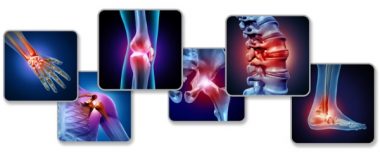Chronic inflammation can cause issues within the body. A medical malady known as malacoplakia can have an adverse effect on the health of middle-aged women.
Definition of Malacoplakia Inflammation
Malacoplakia is a disease that has the potential to precipitate severe incidents of inflammation in several bodily systems. However, the condition is considered quite rare. Scientific researchers suggest that there are roughly 500 reported cases in the world at the current time. This malady typically impacts an individual’s urinary and reproductive tracts. The ailment can also affect other systems, such as the digestive system and the skin.
Causes
As of yet, scientists have not been able to pinpoint one exact cause for the disease’s development. Many members of the medical community opine that the malady might be the result of malfunctioning cell components known as macrophages. These experts also suggest that macrophages are particularly sensitive to infiltration from foreign bodies such as bacteria. Should these organisms or other invaders accumulate inside cell structures, malacoplakia might develop. Therefore, individuals with a weakened immune system are thought to be at greater risk.
Risk Factors
In addition to the presence of potentially dangerous organisms, the disease might also be precipitated or exacerbated by drugs used to treat serious illnesses like cancer or autoimmune disorders because many of these drugs have an adverse effect on the body’s immune system.
Physical Manifestations
The specific symptoms an afflicted person develops will depend on which bodily system the condition is striking.
- Reproductive and Urinary Tract Symptoms – Those whose genitourinary tracts are involved might experience physical manifestations like abnormal bleeding, unusually short or long menstrual cycles, painful and difficult urination, an overactive bladder and tumor growth in organs like the ovaries.
Digestive System Symptoms – When the digestive system is affected, afflicted individuals might witness occurrences including abdominal pain, diarrhea and the development of benign tumors, especially in the colon and rectum.
- Skin Symptoms – Individuals stricken with malacoplakia of the skin may experience increased itching, rashes and the emergence of small subcutaneous growths known as nodules.
Diagnosis
Diagnosis can be difficult and time-consuming as the condition often mimics other serious ailments. Ergo, should a physician suspect the disease’s presence, he or she will often employ diagnostic tools such as tumor biopsies, designed to eliminate other possible causes like cancer, and urinalysis.
Potential Treatment Options
Specific therapeutic protocols will often depend on the systemic tract where the disease is present, the severity of the condition and any possible complications that might exist. That said, common treatment options include the administration of powerful antibiotics or other anti-microbial agents geared toward preventing the spread of bacteria or other disease-precipitating organisms. In severe instances, surgery might be indicated to remove tumors, alleviate systemic blockages such as abnormalities or remove diseased tissue when the infection has spread or is not responsive to drug treatment.
Prevention
Though the disease is rare, preventing its onset might be difficult. Healthcare professionals stress that the key to prevention is to maintain optimal immune system strength. This goal might be achieved by consuming a well-balanced, nutritious diet, getting enough sleep, obtaining adequate amounts of exercise and promptly treating any illness.

 Digestive System Symptoms – When the digestive system is affected, afflicted individuals might witness occurrences including abdominal pain, diarrhea and the development of benign tumors, especially in the colon and rectum.
Digestive System Symptoms – When the digestive system is affected, afflicted individuals might witness occurrences including abdominal pain, diarrhea and the development of benign tumors, especially in the colon and rectum.



